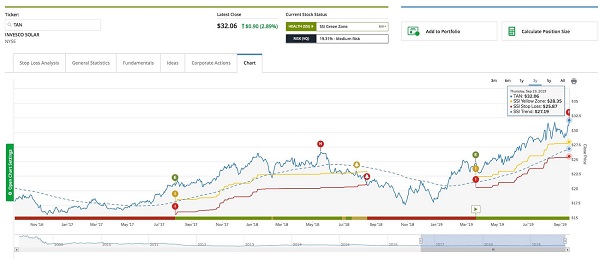How crazy were the drone and missile attacks on Saudi Arabia last weekend? So crazy that the Saudis are becoming oil importers. Seriously. A Sept. 19 Wall Street Journal headline reads: “To Keep Exports Flowing, Saudi Arabia Looks to Import Oil.”
Of all the wild scenarios a market strategist could dream up, if someone had said “the Saudis will be oil importers” they would have been laughed out of the room. And yet here we are.
It actually makes sense upon further inspection. The Saudis have to meet existing supply commitments, but a significant portion of Abqaiq, a large processing facility, was taken offline by the attacks (along with portions of a major oil field). So the Saudis are borrowing from neighbors to plug their supply gaps.
Still, the whole episode has a Twilight Zone feel to it. Another bizarre factor is the way geopolitical tensions escalated through the roof — and yet the stock market didn’t seem to care.
- Crude oil prices initially spiked 20% on news of the attack, the biggest jump since Saddam Hussein invaded Kuwait in August 1990, before giving back about half the move.
- Mike Pompeo, the U.S. Secretary of State, joined Saudi Arabia in openly blaming Iran for the attacks and called it “an act of war.”
- Mohammad Javad Zarif, Iran’s foreign minister and top diplomat, essentially said bring it on, stating that “an all-out war” would, in fact, commence if America or Saudi Arabia hit Iran with a military strike.
- Along with Middle East tensions reaching a boiling point, strategists warn that the high-precision nature of drone-guided attacks could be a “game changer,” with sophisticated drone technology increasingly widespread and more such attacks, against all kinds of facilities, now likely.
In response to the above, which sounds like the first 30 minutes of a “Mission Impossible” movie, the S&P 500 yawned within flirting distance of all-time highs, the Russell 2000 (the benchmark U.S. small cap index) puttered around near its highest level in months, and the gold price barely budged. Wait, what?
As with the Saudis importing oil, the market’s non-reaction has a sane explanation when you look closer.
For one thing, money managers have a hard time taking “war with Iran” seriously as a threat. That isn’t because war with Iran would be no big deal. Instead, it’s because war with Iran would in fact be such a disaster, such a huge and terrifying deal with disastrous consequences for all involved, that nobody can picture it happening.
War with Iran is also the “Boy Who Cried Wolf” of geopolitical crisis scenarios. Ten or 15 years ago, the stock market routinely had hair trigger reactions to bad news from the Middle East. But the tensions came to nothing so many times that the reflex ultimately faded. It’s gotten to the point that another war of words, no matter how harsh, is more likely to trigger eye rolls than fear.
This doesn’t mean war with Iran can’t happen, of course. It just means the market’s collective judgment is “yeah right.” If that judgment proves wrong, and the Middle East erupts in a metaphorical giant fireball, crude oil could spike above $100 and global equities could crash.
But again, the market’s judgment of such a scenario, at least for now, is practically the title to a new Taylor Swift song: “You need to calm down.”
Then, too, rising oil prices just don’t pack the same punch that they used to. Inflation pressures have been consistently weak, gasoline prices had been downtrending for months, and oil prices would have to go much higher on a sustained basis — some analysts say to $80 or more — before the impact would really put a dent in corporate earnings and economic growth.
At the same time, the Saudi-led jump was a big positive for the U.S. energy sector. An especially happy camper was shale tycoon Harold Hamm, who reportedly saw his net worth jump by $2 billion in a single day. The prospect of higher-priced oil on a long-term basis is a cheery prospect for oil and gas producers in general, which were otherwise down in the dumps this year.
Last but not least, the prospect of higher oil prices, due to a new “fear premium” on Middle East production, is a positive for renewable energy, which helps explain why TAN, the solar ETF, surged to new multi-year highs this week, as shown below. Liquid natural gas, an energy source with plenty of safe domestic output, could also see long-term benefit.
 |
As a side note, you can track the health of both the Energy Sector and various energy commodities in the Market Health section of Ideas by TradeSmith.
It’s easy to see why the stock market confuses people. Sometimes it appears to have no reaction at all to events that are huge. At other times it reacts aggressively to events that seem inconsequential, or to data points that appear trivial, or even to no news at all.
Beneath it all, however, there remains a method to the madness. Unless something radical happens, the market’s message is that Middle East tensions aren’t something to worry about for now.





